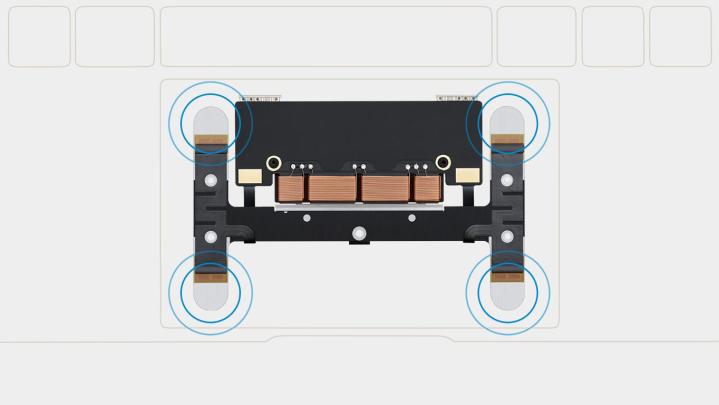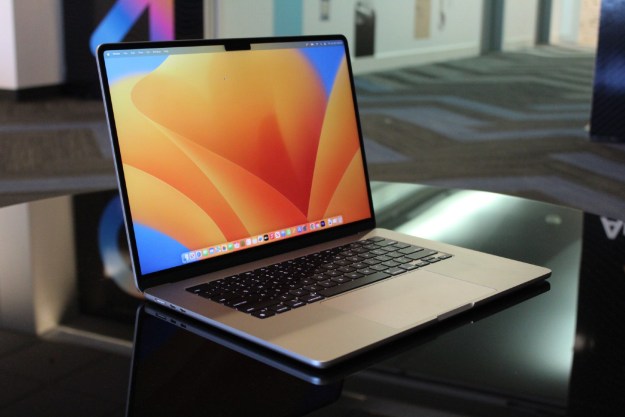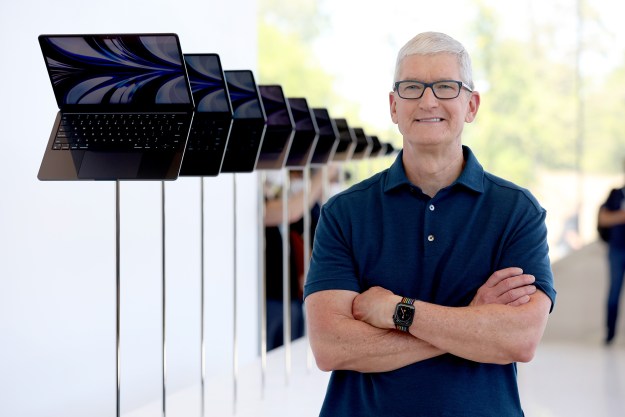
Apple’s method of haptic feedback, which it calls “Taptics,” uses sensors and electromagnetic motors to fool your brain into perceiving mounted surfaces as clickable. The MacBook’s Taptic-equipped Force Touch trackpad, for example, never moves but feels like it’s responding mechanically when pressed. The Apple Watch’s touchscreen, which uses the same Taptics principles, works similarly.
Related: Is Apple’s new MacBook the last of a dying breed?
The possibilities of Taptics are exciting. The Force Touch trackpad can perform distinct actions depending on the amount of force exerted, like speeding up the fast forward of a video or pulling up the definition of a selected word on a harder click. But the implications go beyond software interactions.
A Taptics keyboard could pave the way for slimmer and more durable computers. The sensors and actuators in haptics take up much less space than the membranes of conventional keyboards, and the lack of mechanical parts could help increase longevity or result in water-resistant systems.
Related: The next iPhone said to incorporate force touch and include a pink color option
Certain smartphones may be the first to gain from the technology – rumors suggest the next iPhones will contain the same Force Touch found in the Apple Watch. But Apple seems to be going all in with Taptics, calling it the “most significant new sensing capability since Multi-Touch.” We eagerly await the inevitably thinner and lighter MacBooks to come.
Editors' Recommendations
- The biggest threat to the MacBook this year might come from Apple itself
- 6 upcoming products that will make 2024 a huge year for Apple
- I’m finally ready to stop recommending Apple’s cheapest MacBook
- Apple’s first OLED MacBooks are still years away, says report
- Apple’s new M3 Macs could launch any day now, leak claims


